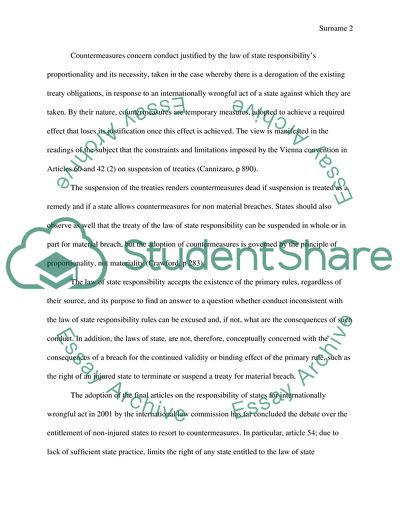Cite this document
(The Law of State Responsibility Term Paper Example | Topics and Well Written Essays - 2500 words, n.d.)
The Law of State Responsibility Term Paper Example | Topics and Well Written Essays - 2500 words. Retrieved from https://studentshare.org/law/1747964-public-international-law
The Law of State Responsibility Term Paper Example | Topics and Well Written Essays - 2500 words. Retrieved from https://studentshare.org/law/1747964-public-international-law
(The Law of State Responsibility Term Paper Example | Topics and Well Written Essays - 2500 Words)
The Law of State Responsibility Term Paper Example | Topics and Well Written Essays - 2500 Words. https://studentshare.org/law/1747964-public-international-law.
The Law of State Responsibility Term Paper Example | Topics and Well Written Essays - 2500 Words. https://studentshare.org/law/1747964-public-international-law.
“The Law of State Responsibility Term Paper Example | Topics and Well Written Essays - 2500 Words”, n.d. https://studentshare.org/law/1747964-public-international-law.


